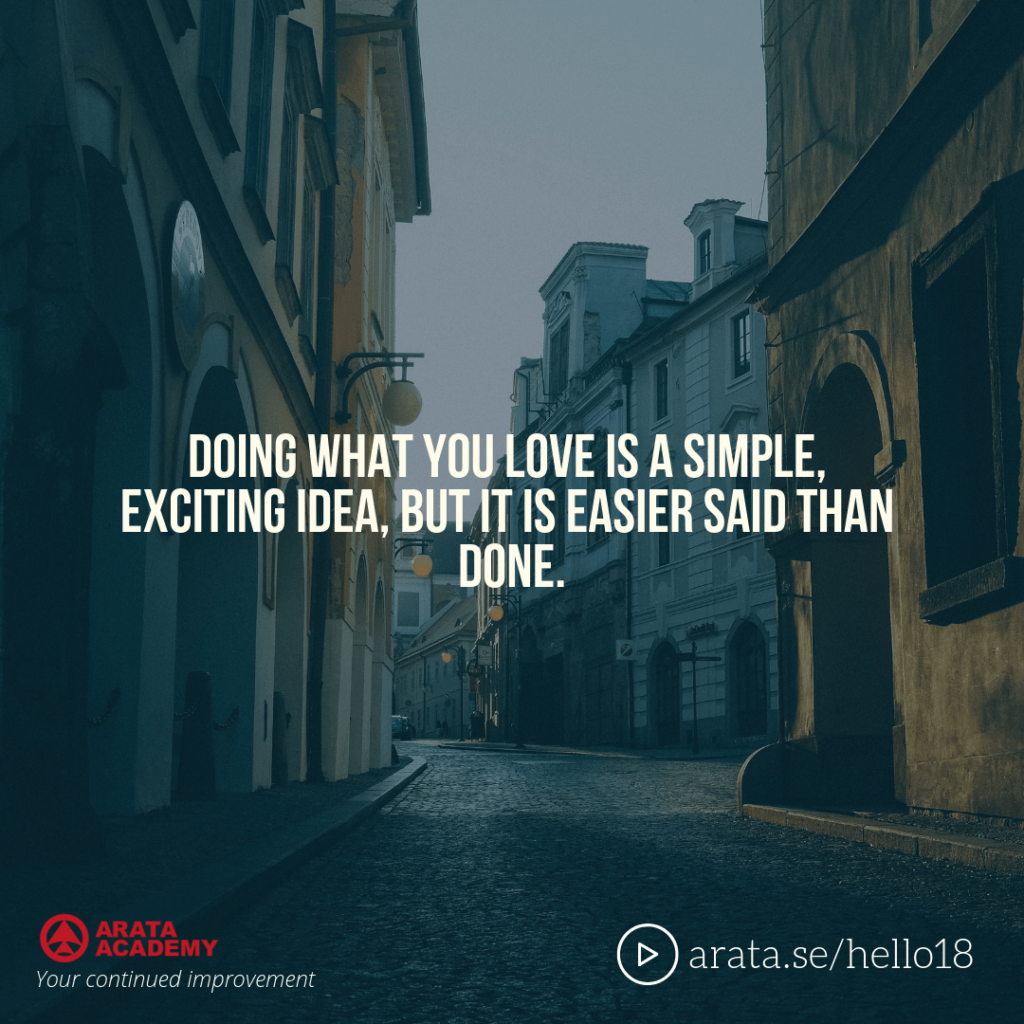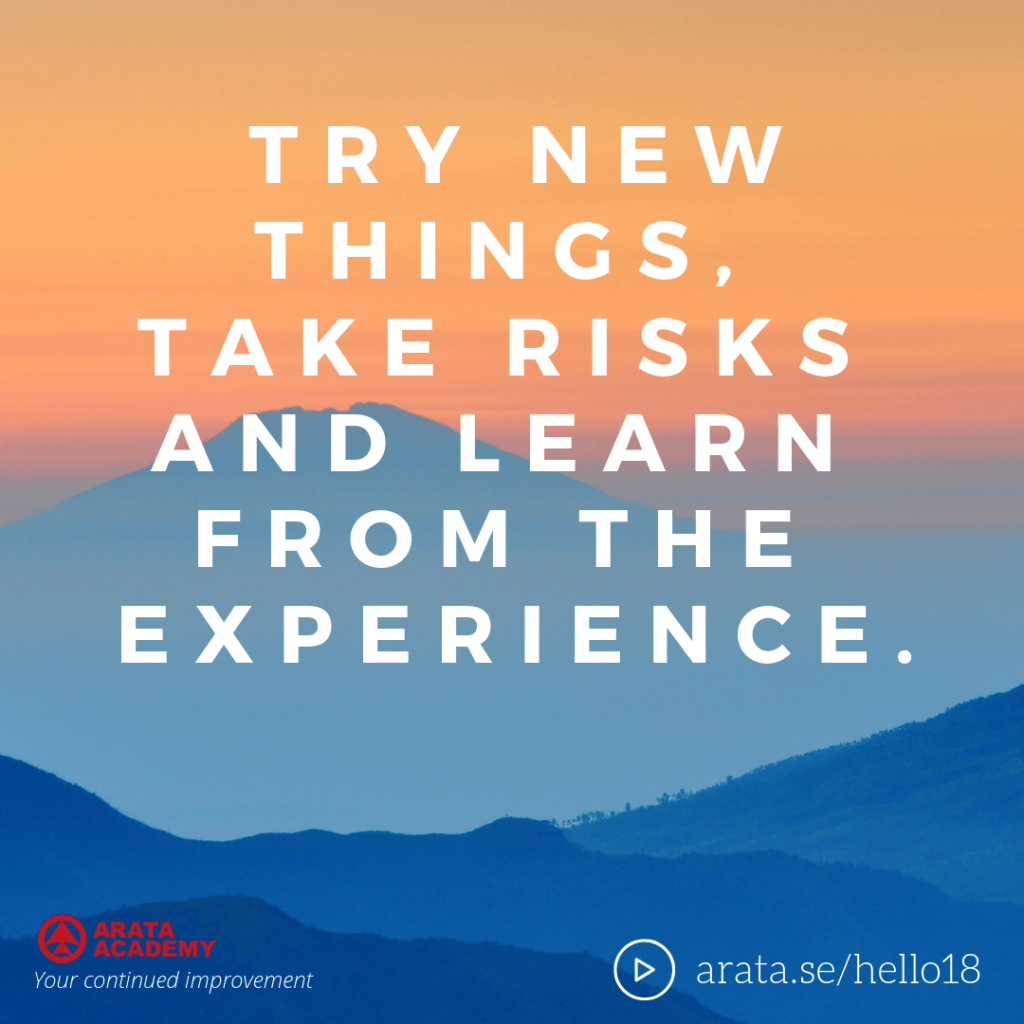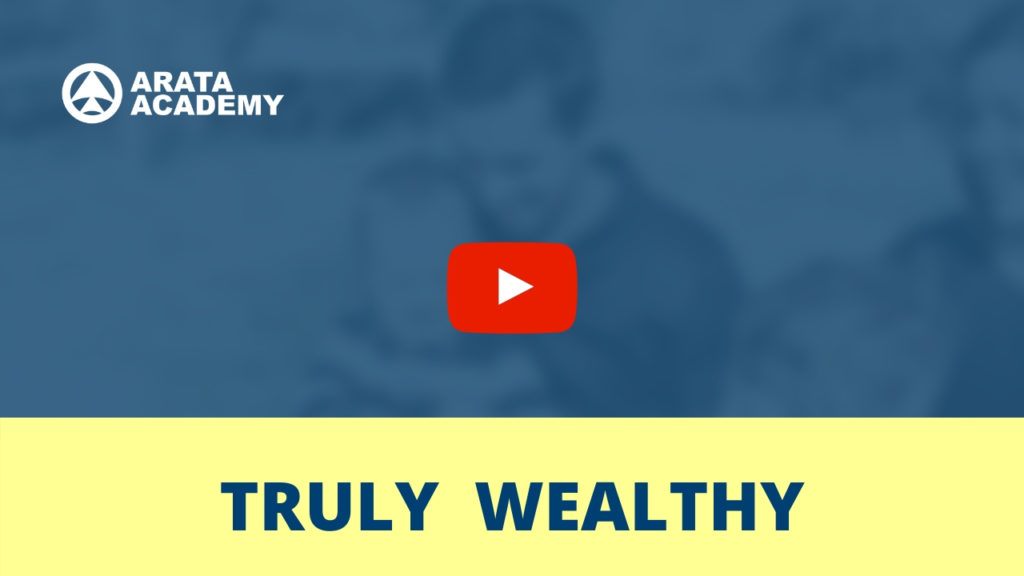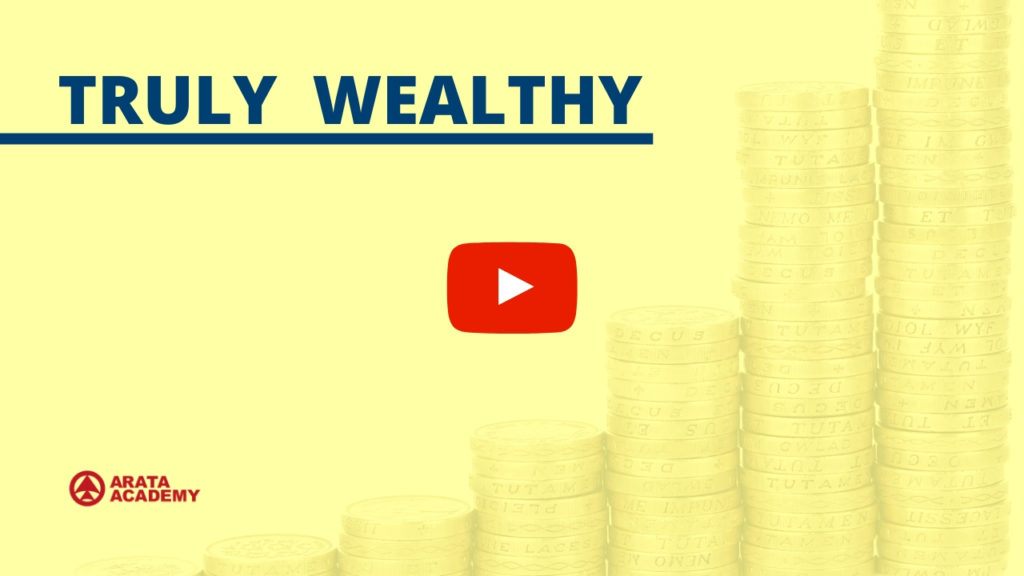Hello! Seiiti Arata. Our work is most rewarding when we feel that we are contributing to something bigger. Something that has a positive impact around us. When our work brings benefits to society in general, we feel good and we are happier.
1. Doing what you love.
If you get career advice from friends and many self-help authors, you’ve probably heard the suggestion to do what you love. I honestly think it’s better to love what we do, but that’s a conversation for another video.

Doing what you love is a simple, exciting idea, but it is easier said than done. And it invites a good question: what exactly do you love?
Let’s take some time to think about what puts you in a state of flow.
2. Experiencing a state of flow.
In the previous video we acknowledged that neither money nor recognition brings happiness. Check that video, so you can better understand what we will present here as the “flow state”. Flow is a state of total focus and concentration—you are so absorbed in the activity that you forget everything else.
You experience this sense of flow while engaging in an activity that you love, something that gives satisfaction by itself, regardless of money, regardless of admiration. It is an intrinsic motivation.
Job satisfaction also requires a certain degree of autonomy. You need the freedom to use your creative potential and to make your own decisions.
If you’re stuck in a job where you have no opportunity to experience the state of flow, it may be time to consider a change.
3. Seeking freedom.
There are two ways to increase freedom at work.
The first is through self-employment and entrepreneurship. This of course has its pros and cons.
Self-employment greatly increases the challenges—you no longer have the supervisors, structures, internal rules and various documented procedures. Yes, autonomy brings freedom, but it also comes with greater financial risks and longer hours, including working late into the night or the weekend. No paid holidays. The self-employed person is on his or her own.

A second option is to find freedom outside the office by working less. In many offices now there is a tendency to allow the employees to work a little less and take a slower career, receiving less money than others who are competing for the higher positions. Those who choose this path need to make some financial adjustments and reduce costs, but it may be worthwhile. What is it worth to you to devote time to focus on what you really love?
4. Finding work that fills us.
Take time to reflect on what kind of work you would love.
To warm up, think of your career so far. What are the qualifications and skills you have developed? And what was it that motivated you to do this? Now let’s begin to look forward.
See the video titled Finding Purpose in Life to help you in this process.
In this reflection, have the audacity to think freely. It’s just a creative exercise! If you could follow any path in your career, what would it be?
5. Learning by doing
Perhaps you’ve seen some advice to plan your career in great detail. There is a problem with this approach: planning almost never works because we’re not very good at predicting the future.

A much more effective approach is to “act first and think along the way”. It’s better to experiment with different situations, multiple activities and different working environments than to waste those hours in the world of imagination as you seek a perfect position.
How do we do this? How about volunteering, which is a great way to have a practical, short-term experience? Or ask to observe a colleague at work if you are interested in learning more about what they do. This is quite common—it’s called “job shadowing”, meaning that you literally follow the person during the workday. It’s a very valuable way to learn what others do and compare how that experience matches your idealised version of their work.
Another way of learning by doing without committing too much time is to do the activity only on weekends instead of full-time. If you realise that the work is as satisfying as you’d expected, you can gradually increase the time you devote to it and make a gradual transition.
Let us leave the idea of meticulous planning aside. If the current situation is not bringing fulfillment, we need to try new things, take risks and learn from the experience.
There will never be a perfect time to make the transition—it is important to reduce our financial expenses to gain more freedom.
Next week we will share some excellent tips for decreasing our financial commitments, spending less in exchange for more fulfillment. Subscribe to the channel if you’re new here and follow us!

